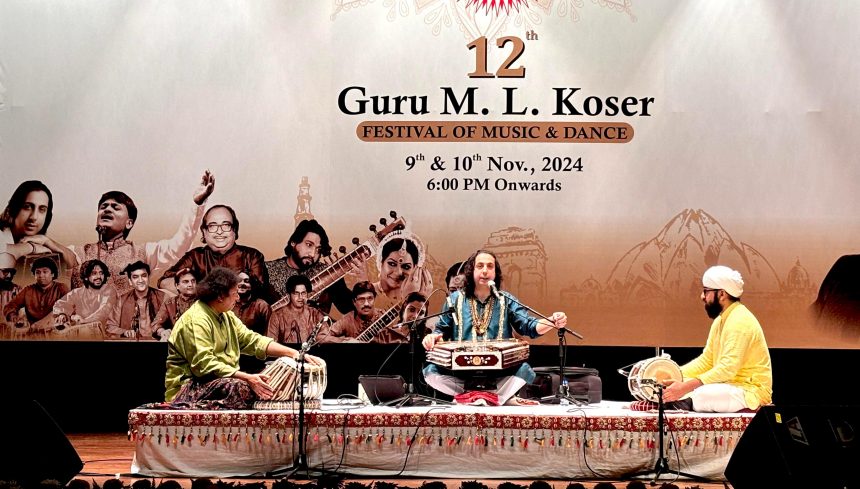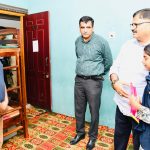New Delhi, Nov 10: Santoor maestro and acclaimed music composer Pandit Abhay Rustum Sopori has revived a rare and cherished classical instrument from Kashmir’s Sufiana music tradition – the Wasul. Absent from the musical landscape for nearly 77 years, the Wasul makes a historic comeback after its extinction in the 1940s. This remarkable feat marks a significant step in preserving and promoting the cultural legacy of Kashmir.
The Wasul disappeared from the music scene largely due to Sufiana musicians adopting the Dukra and later Tabla due to many social reasons, coupled with the tragic loss of the Sopori family’s own age-old Wasul during the Kabali Raid in Kashmir in October 1947. Over the decades, the instrument became nothing more than a reference in history, its sound and technique lost to time.
Through persistent efforts, Abhay Sopori has brought the Wasul back to life, introducing it as not only an emblem of the Sopori family’s legendary legacy but as an integral part of Kashmiri and Sufiana music heritage. “The Kashmiri Wasul stands as a counterpart of Indian classical Pakhawaj,” Sopori explains. “However, the rhythmic patterns on the Wasul are unique, specially crafted for the Sufiana music tradition, distinct from those played on the Pakhawaj.”
Pandit Abhay Sopori expressed immense joy at reintroducing the Wasul to the music world, saying, “The Wasul has been an integral part of my family’s musical heritage, alongside the Santoor, Kashmiri Sitar, and vocal music. My great-grandfather, Pandit Samsar Chand Sopori ji, was renowned as one of the finest Wasul players, honoured with the title ‘Taalbaz’, a beautiful tribute to his rhythmic mastery. I am deeply grateful that, with the blessings of my ancestors and my gurus, my grandfather, the legendary Pandit Shamboo Nath Sopori ji, hailed as the ‘Father of Classical music’ in Jammu and Kashmir, and my father Pandit Bhajan Sopori ji, I have been able to revive an instrument with a history spanning thousands of years.”








